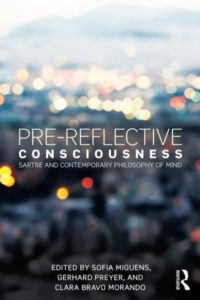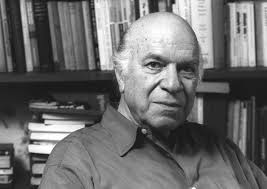 « A Pebble at the Bottom of the Water: Sartre and Cavell on the Opacity of Self-knowledge »
« A Pebble at the Bottom of the Water: Sartre and Cavell on the Opacity of Self-knowledge »
in Sofia Miguens, Gerhard Preyer, Clara Bravo Morando, Pre-reflective Consciousness, Sartre and Contemporary Philosophy of Mind, 2015, Routledge (p. 208-224)
Abstract: Sartre’s famous claim that consciousness “is aware of itself in so far as it is consciousness of a transcendent object” commits him to an original and interesting version of the transparency model of self-knowledge. According to this view, experiencing a relation to a transcendent object is sufficient to make consciousness aware of itself, while reflecting on one’s experience diverts consciousness from itself. Reflection, Sartre argues, reverses the relation between consciousness and the Ego and conceals to consciousness its impersonal structure. One’s immediate awareness of her conscious experience is therefore unable to secure self-knowledge.

On the contrary, Sartre establishes in Transcendence of the Ego a logical relation between the translucence of consciousness and the opacity of the Ego, the latter resulting from the former. The purpose of this article is to measure the consequences of this view on self-knowledge, and to show that this relationship between translucence and opacity makes the pursuit of self-knowledge both necessary and impossible. The last section attempts to address this paradox by drawing on Cavell’s analysis of the relation between first person narration and self-concealment.
 Pierre-Jean Renaudie
Pierre-Jean Renaudie